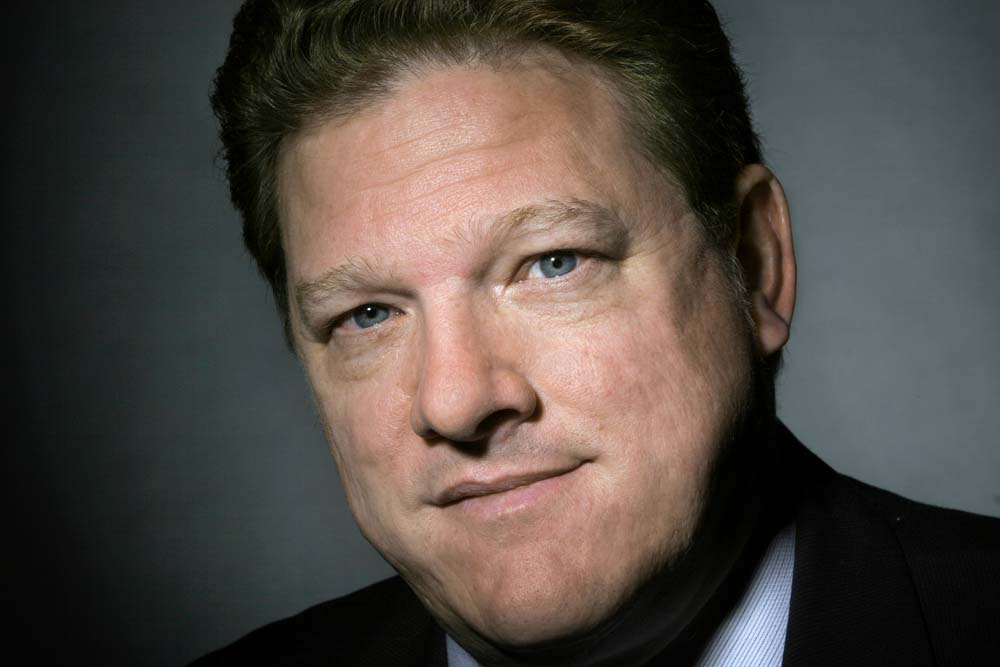 Brian O’Connor ’82 is a personal finance columnist for The Detroit News, author of The $1,000 Challenge: How One Family Slashed Its Budget Without Moving Under a Bridge, and a Reunion 2017 volunteer.
Brian O’Connor ’82 is a personal finance columnist for The Detroit News, author of The $1,000 Challenge: How One Family Slashed Its Budget Without Moving Under a Bridge, and a Reunion 2017 volunteer.
What brought you to Sarah Lawrence?
The educational philosophy appealed to me quite a bit because I came from a very liberal school in metro Detroit, The Roeper School, founded by two educators who escaped the Holocaust, which believed in educating the whole child. And I liked the idea of being able to pursue music and drama seriously without having to major and choose between other subjects. Plus, being close to New York City was a big, big attraction.
What was your favorite spot on campus?
Anywhere near the wisteria arbor in the spring. One of my most vivid memories is the way the entire campus blooms in the spring, and there’s just this riot of fragrances wafting the whole place. One year it was an unseasonably hot May and I remember dozens of students dragging blankets out on the lawn at night. I would say my least favorite was what’s now called the Teahouse, the little stone cottage behind Westlands in front of the new dorms. That was the newspaper office for my first two years, and trying to produce an issue of the paper in February in near darkness with nothing but one wheezing space heater was about as much fun as it sounds.
My other favorites were Andrews Court 6, because I was able to live with a great bunch of folks, and the year I lived in Kober House. It was just six of us up in the third floor above the Early Childhood Center. It was a big hike from everything else on campus, so it could be quite cozy. There also was a beautiful garden out front and, when parents were dropping off their kids in the morning, a good reminder that there was a life outside of college. And, of course, the Marshall Field House studio of my voice teacher, the late Paul Ukena, who was great to me, and the downstairs studio of Harold Aks, who went so far as to line up a job interview for me with one of his old friends at Discover Magazine. Harold also shared some very funny stories of being an Army Air Corps weather officer during WWII.
What was it like running the campus newspaper as a student?
Difficult. We had no idea what we were doing, no guidance, and just the physical production of the paper in the era before the personal computer—typesetting, film processing and printing, paste-up, and proofing—was much more time-consuming and tedious than publishing is today—we spent 27 hours just on the physical production of one issue I tracked. And money was always a big problem, too. Plus, it was a complete elective, so we didn’t get credit.
Because of my experience running the paper, I was able to land a job on a weekly newspaper in Queens shortly after spring break of my senior year. I was the first person in my class to get an actual job. Despite the difficulty, I think students do need the experience of a campus publication where they can experiment, or at least dip their toes, into publishing and journalism. If nothing else, it allows a kid to get over the humiliation of typos and corrections in a setting where there isn’t a city editor to fire you.
What drew you to personal finance?
Newspaper jobs were unbelievably hard to find when I graduated, but business coverage was expanding at papers and, thanks to a friend’s bald-faced lying, I nabbed one after a few years at the Queens Tribune. Personal finance was a neglected corner of business, so I handled much of that editing. It gave me enough background that when Bankrate.com needed a managing editor to build the website (now the leading personal finance site on the web), I was hired because I was familiar with the topic. After Bankrate, I’ve found so much deep, unexplored territory in personal finance that I’ve stuck with it ever since.
It probably surprises people to know that I was never very good with money, even though I somehow scraped by at my first job in New York, which paid the princely sum of $215 a week ($535 in today’s dollars) before taxes. My finances still aren’t perfect, given what’s happened to the newspaper industry, the great recession, and the fact that reporters aren’t very highly paid to begin with.
Right now, I think readers have big reasons to reject most personal finance coverage because we did such a lousy job with both the high-tech and mortgage bubbles. In addition, we really don’t speak to the concerns of growing income inequality, the looming retirement crisis, and all the issues tied to a lack of financial literacy and the politics behind that.
How do you stay connected to the Sarah Lawrence community?
I’m still close friends with several classmates, as well as a few from the previous classes. In fact, I’m probably better friends with some of them now than I was in school, and that’s all owing to Facebook and attending reunions. I think of my Sarah Lawrence friends as part of a tribe, and when you find funny, smart, concerned, interesting, and nontraditional people in that tribe, you don’t want to leave.